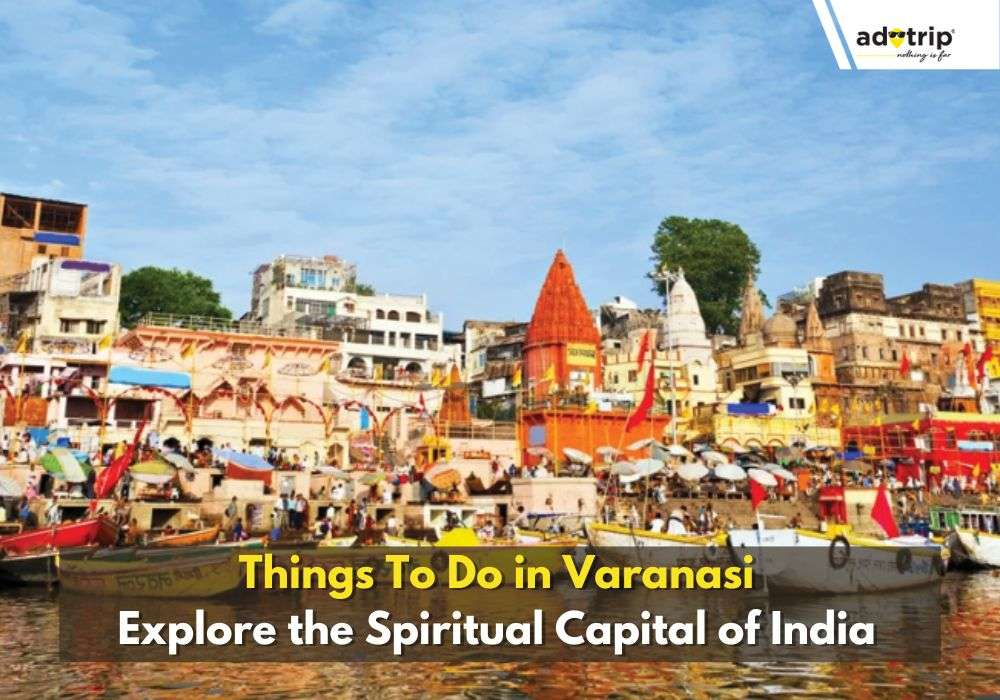
Last Updated At: 27-Jan-2025
Best Things To Do in Varanasi 2025 - Explore the Spiritual Capital of India
Have you ever visited a city that feels magical? Varanasi in Uttar Pradesh, Northern India, is just that. Dating back to the 11th century B.C., it's known for being a spiritual heartland. For anyone curious about things to do in Varanasi, there's much to explore – from holy dips in the Ganges to temple visits. This city is a mix of old temples, busy markets, and famous ghats (riverfront steps).
Varanasi is famous for its deep spiritual significance. The best time to visit is from November to February when the weather is pleasant. Getting there is easy via the Varanasi Junction railway station, and the nearest airport is Lal Bahadur Shastri International Airport. Don't miss the Ganga Aarti at Dasaswamedh Ghat, a mesmerising ritual at sunrise. Wander through narrow lanes to discover markets like Thatheri Bazar, where you can buy silk items and Banarasi sarees. Continue to read more!
List Of Top 15 Things to Do in Varanasi
Varanasi, often considered a budget destination, welcomes travellers with open arms, providing an authentic Indian experience without breaking the bank. So, without further ado, continue to discover how to spend a day in this spiritual haven and learn how many days are sufficient to unravel the layers of spiritual activities in Varanasi.
- Kashi Vishwanath Temple: Dedicated to Lord Shiva
- Dashashwamedh Ghat: Mesmerising Spiritual Spectacle
- Ganga Aarti: Rhythmic Chanting of Hymns
- Assi Ghat: Serene and Laid-Back Atmosphere
- Sankat Mochan Hanuman: Dedicated to Lord Hanuman
- Ganga Mahotsav: Unfolds on the Ghats of Varanasi
- Ramnagar Fort: Regal Saga of Varanasi's History
- Vishwanath Gali: Varanasi's Vibrant Street Culture
- Vishwanath Temple: Referred to as the Golden Temple
- Durga Temple: Known as the Durga Kund Mandir
- Banaras Hindu University (BHU): Blends Academic Excellence With Cultural Richness
- Nepali Temple: Called the Kathwala Temple
- Shivala Ghat: Known for Its Ancient Shrines
- Gyan Vapi Well: Location of the Original Jnana Vapi Well
- Batuk Bhairav Mandir: Manifestation of Lord Shiva
1. Kashi Vishwanath Temple - Dedicated to Lord Shiva
The Kashi Vishwanath Temple, dedicated to Lord Shiva, symbolises devotion and architectural brilliance. It attracts pilgrims from far and wide in the city's heart. The temple's sacred Jyotirlinga is believed to bestow blessings and liberation. As you navigate through the narrow lanes leading to the temple, the vibrant atmosphere and devout pilgrims create an atmosphere steeped in religious fervour. This is one of the best local cultural experiences in Varanasi.
- Top attractions: Kashi Vishwanath Temple, Gyanvapi Mosque, Manikarnika Ghat, Tulsi Manas Temple, Dashashwamedh Ghat
- Best time to visit: October to March
- Nearby spots: Ganga Ghats, Sarnath, Banaras Hindu University (BHU)
2. Dashashwamedh Ghat - Mesmerising Spiritual Spectacle
Dashashwamedh Ghat, on the other hand, is a pulsating centre of activity along the Ganges. Renowned for its daily Ganga Aarti, the ghat becomes a stage for a mesmerising spiritual spectacle during the evening. Pilgrims and tourists gather to witness the rhythmic hymns, Varanasi riverfront boat tours, and the illuminated lamps gracefully moving to the river's sacred rhythm. Dashashwamedh Ghat encapsulates the spirituality and grandeur that define Varanasi.
- Top attractions: Ganga Aarti, Boat Ride on the Ganges, Temples near Dashashwamedh Ghat, Walk along the Ghats, Subah-e-Banaras.
- Best time to visit: October to March
- Nearby spots: Manikarnika Ghat, Kashi Vishwanath Temple, Tulsi Manas Mandir
3. Ganga Aarti - Rhythmic Chanting of Hymns
Ganga Aarti is a mesmerising ritual on the ghats of the sacred Ganges River, with the most famous being the one at Dasaswamedh Ghat. This awe-inspiring ceremony involves the synchronised movement of priests, the rhythmic chanting of hymns, and the illumination of countless lamps. As the lamps float downstream, the river becomes a canvas of flickering lights, creating a divine ambience that resonates with the spiritual vibrancy.
- Top attractions: Ganga Aarti at Dashashwamedh Ghat, Kashi Vishwanath Temple, Manikarnika Ghat
- The best time to visit: October to March.
- Nearby spots: Kedar Ghat, Harishchandra Ghat, Panchganga Ghat
4. Assi Ghat - Serene and Laid-Back Atmosphere
Assi Ghat is one of the best historical sites in Varanasi to explore, with a serene and laid-back atmosphere. Situated at the confluence of the Ganges and Assi rivers, it is a favourite spot for meditation and yoga enthusiasts. The ghat offers a peaceful retreat from the bustling activities of the city. It is also a cultural hub, hosting events, festivals, and cultural performances that showcase Varanasi's artistic and musical heritage.
- Top attractions: Banaras Hindu University (BHU), Tulsi Manas Mandir, Sankat Mochan Hanuman Temple
- Best time to visit: October to March
- Nearby spots: Sri Durga Temple, Panchganga Ghat, Banaras Hindu University (BHU)
5. Sankat Mochan Hanuman - Dedicated to Lord Hanuman
Sankat Mochan Hanuman Temple is a revered shrine dedicated to Lord Hanuman, the harbinger of courage and strength. Tucked away from the bustling ghats, this temple is known for its spiritual aura and devout atmosphere. Pilgrims visit to seek solace and blessings, and the temple also actively engages in social and environmental initiatives. The soul-soothing chants and the tranquil surroundings make it a peaceful sanctuary within the lively city.
- Top attractions: Assi Ghat, Tulsi Manas Mandir, Durga Temple (Durga Kund Mandir)
- Best time to visit: October to March
- Nearby spots: Assi Ghat, Banaras Hindu University (BHU), Durga Temple (Durga Kund Mandir)
6. Ganga Mahotsav - Unfolds on the Ghats of Varanasi
Ganga Mahotsav, on the other hand, is a celebration that unfolds on the ghats of Varanasi, showcasing the city's rich cultural heritage. This vibrant festival is a kaleidoscope of classical music, dance, and traditional arts. It usually takes place in November and is a platform for renowned artists to showcase their talent. The riverbank comes alive with the rhythm of traditional performances, creating an enchanting atmosphere that resonates with the cultural vibrancy of Varanasi.
- Top attractions: Ganga Mahotsav Celebrations, Ganga Aarti, Boat Procession on the Ganges
- Best time to visit: November or December
- Nearby spots: Kashi Vishwanath Temple, Tulsi Manas Mandir, Dashashwamedh Ghat
7. Ramnagar Fort - Regal Saga of Varanasi's History
Ramnagar Fort, gracefully perched on the eastern bank of the Ganges, narrates the regal saga of Varanasi's history. A testament to the city's royal past, the fort's majestic architecture and the treasures within its museum transport visitors to an era of opulence. As the Ganges flows beside it, Ramnagar Fort stands as a silent guardian, its walls echoing the stories of the Maharajas who once called it home.
- Top attractions: Ramnagar Fort, Chunar Fort, Sarai Mohana
- Best time to visit: October to March
- Nearby spots: Chunar Fort, Durga Temple (Durga Kund Mandir), Sarnath
8. Vishwanath Gali - Varanasi's Vibrant Street Culture
Vishwanath Gali, a lively alley adjacent to the revered Kashi Vishwanath Temple, is a microcosm of Varanasi's vibrant street culture. The narrow pathway is a sensory delight, teeming with colourful shopping and markets in Varanasi selling religious artefacts, traditional clothing, and the aromas of delectable street food. The bustling energy of Vishwanath Gali provides a vivid contrast to the serene spiritual ambience of the nearby temple, offering a glimpse into the diverse facets of Varanasi.
- Top attractions: Kashi Vishwanath Temple, Vishalakshi Temple, Manikarnika Ghat
- Best time to visit: October to March
- Nearby spots: Kashi Vishwanath Temple, Vishalakshi Temple, Manikarnika Ghat
9. Vishwanath Temple - Referred to as the Golden Temple
The Kashi Vishwanath Temple, often called the Golden Temple, is a spiritual nucleus that draws pilgrims from across the globe. Dedicated to Lord Shiva, its ornate architecture and sacred significance make it a quintessential pilgrimage site. The temple stands as a beacon of devotion, with the devout seeking blessings and solace within its hallowed precincts, adding to the spiritual resonance of Varanasi.
- Top attractions: Kashi Vishwanath Temple, Gyanvapi Mosque, Vishalakshi Temple
- Best time to visit: October to March
- Nearby spots: Vishalakshi Temple, Manikarnika Ghat, Gyanvapi Mosque
10. Durga Temple - Known as the Durga Kund Mandir
Durga Temple, also known as the Durga Kund Mandir, is a vibrant Hindu temple dedicated to Goddess Durga in Varanasi. The temple features intricate architecture and is a centre for worship and festivities. Durga Temple, a striking red-hued edifice, adds another layer to Varanasi's architectural marvels. Built-in the 18th century, it is a tribute to the goddess Durga. Pilgrims and admirers alike are drawn to its intricate design and vibrant presence, further enriching the city's cultural and spiritual allure.
- Top attractions: Durga Temple (Durga Kund Mandir), Tulsi Manas Mandir, Sankat Mochan Hanuman Temple
- Best time to visit: October to March
- Nearby spots: Sankat Mochan Hanuman Temple, Vishwanath Gali, Assi Ghat
11. Banaras Hindu University (BHU) - Blends Academic Excellence With Cultural Richness
Banaras Hindu University (BHU), established by the visionary Pandit Madan Mohan Malaviya, is a dynamic institution that blends academic excellence with cultural richness. The sprawling campus hosts academic facilities, temples, art galleries, and the Bharat Kala Bhavan Museum. BHU's presence is a testament to Varanasi's role as a cultural and intellectual crucible, shaping the minds and spirits of those who pass through its gates.
- Top attractions: Bharat Kala Bhavan Museum, New Vishwanath Temple (Birla Temple), BHU Botanical Gardens
- Best time to visit: October to March
- Nearby spots: Bharat Kala Bhavan Museum, New Vishwanath Temple (Birla Temple), Lal Bahadur Shastri Bhavan (Library Building)
12. Nepali Temple - Called the Kathwala Temple
Nepali Temple, also called the Kathwala Temple, is a unique shrine in Varanasi gifted by the King of Nepal. It features traditional Nepali architecture and intricate woodwork, making it a distinctive cultural attraction. Built in traditional Nepalese style, the temple's pagoda-like architecture and intricate woodwork capture the essence of Nepal, offering a serene escape within the bustling city.
- Top attractions: Nepali Temple (Kathwala Temple), Sankat Mochan Hanuman Temple, Tulsi Manas Mandir
- Best time to visit: October to March
- Nearby spots: Sankat Mochan Hanuman Temple, Tulsi Manas Mandir, Durga Temple (Durga Kund Mandir)
13. Shivala Ghat - Known for Its Ancient Shrines
Shivala Ghat is a serene ghat on the Ganges in Varanasi. Known for its ancient shrines, it offers a peaceful setting for prayers and meditation. The ghat is adorned with ornate architecture and is a retreat for spiritual seekers. Shivala Ghat, located on the western bank of the Ganges, exudes an ancient charm. This peaceful ghat is adorned with shrines dedicated to Lord Shiva, creating a tranquil atmosphere for devotees and seekers. The spiritual energy of Shivala Ghat is palpable, making it a lesser-explored gem along the sacred river.
- Top attractions: Jantar Mantar, Shivala Ghat, Kashi Vishwanath Temple
- Best time to visit: October to March
- Nearby spots: Jantar Mantar, Manikarnika Ghat, Kashi Vishwanath Temple
14. Gyan Vapi Well - Location of the Original Jnana Vapi Well
Gyan Vapi Well, situated near the Vishwanath Temple in Varanasi, is believed to be the location of the original Jnana Vapi Well. Devotees believe that a dip in its waters imparts knowledge and wisdom. Legend has it that the original Jyotirlinga (Shiva Linga) was hidden in this well during Aurangzeb's rule to protect it. Pilgrims believe that a glimpse of the submerged Jyotirlinga brings divine blessings, adding a layer of mystique to this ancient well.
- Top attractions: Kashi Vishwanath Temple, Vishalakshi Temple, Manikarnika Ghat
- Best time to visit: October to March
- Nearby spots: Kashi Vishwanath Temple, Manikarnika Ghat, Sankat Mochan Hanuman Temple
15. Batuk Bhairav Mandir - Manifestation of Lord Shiva
Batuk Bhairav Mandir, dedicated to the fierce manifestation of Lord Shiva, stands as a testament to Varanasi's diverse temple architecture. Located near the famous Durga Temple, this shrine attracts devotees seeking the protective and benevolent blessings of Lord Bhairav. The temple's vibrant rituals and unique iconography contribute to the spiritual vibrancy of Varanasi. Devotees visit to seek protection and blessings from the deity. The temple holds religious significance in Hindu mythology.
- Top attractions: Batuk Bhairav Mandir, Sankat Mochan Hanuman Temple, Durga Temple (Durga Kund Mandir)
- Best time to visit: October to March
- Nearby spots: Sankat Mochan Hanuman Temple, Durga Temple (Durga Kund Mandir), Tulsi Manas Mandir
Varanasi beckons as a city where spirituality intertwines with history, creating a unique tapestry of cultural experiences. The best time for tourists to visit Varanasi is usually from October to March. Whether exploring the city's profound spiritual side or its vibrant cultural markets, Varanasi captivates with its authenticity and timelessness. So, as you plan your journey, embrace the enchanting chaos, Varanasi food and culinary delights, delve into the rich heritage, and let Varanasi weave its magic on your soul.
Plan your trip with Adotrip today. Enjoy a wealth of information, end-to-end travel assistance, and the ability to book flights, Hotels, and Tour Packages under one roof.
Also Read: Tourist Places To Visit In Varanasi
With Adotrip, nothing is far!
Book Varanasi Tour Packages
Frequently Asked Questions Regarding Things to Do in Varanasi
Q1. What are the famous ghats to visit in Varanasi?
A1. Famous Ghats in Varanasi are:
- Dasaswamedh Ghat: the main ghat and is famous for the Ganga Aarti ceremony, which is held every evening.
- Assi Ghat: Known for its peaceful ambience, it's a great place for meditation and yoga.
- Manikarnika Ghat: This is one of the oldest ghats and is known for its cremation ceremonies.
- Panchganga Ghat: A sacred spot where five rivers are believed to meet.
Q2. How can I experience the spiritual side of Varanasi?
A2. Experiencing the Spiritual Side are:
- Attend Ganga Aarti: Witness the mesmerising Ganga Aarti at Dasaswamedh Ghat in the evening for a spiritual experience.
- Take a Boat Ride: Hire a boat to witness the ghats from the Ganges, especially during sunrise or sunset.
- Visit Temples: Explore the numerous temples in Varanasi, such as the Kashi Vishwanath Temple, Sankat Mochan Hanuman Temple, and Durga Temple.
Q3. Are there any boat tours available in Varanasi?
A3. Boat tours are widely available, and you can negotiate with local boatmen at the ghats for a ride. Some hotels also offer boat tours as part of their services.
Q4. What are some popular places for shopping in Varanasi?
A4. Popular Places for Shopping are:
- Vishwanath Lane: Famous for silk and brocade products.
- Thatheri Bazar: Ideal for buying traditional Banarasi sarees and fabrics.
- Godowlia Market: A bustling market offering a variety of items, including handicrafts, jewellery, and street food.
Q5. Can you suggest some offbeat activities to do in Varanasi?
A5. Some of the best offbeat activities are:
- Visit the Ramnagar Fort: Across the Ganges, this fort has a museum showcasing vintage cars, royal collections, and more.
- Chunar Fort: Take a day trip to Chunar Fort, which is known for its historical significance.
- Explore Varanasi's Street Art: Walk through the narrow alleys to discover hidden street art and murals.
- Attend a Yoga or Meditation Session: Many centres in Varanasi offer yoga and meditation classes for a serene experience.
--- Published By Adotrip
Latest Blogs
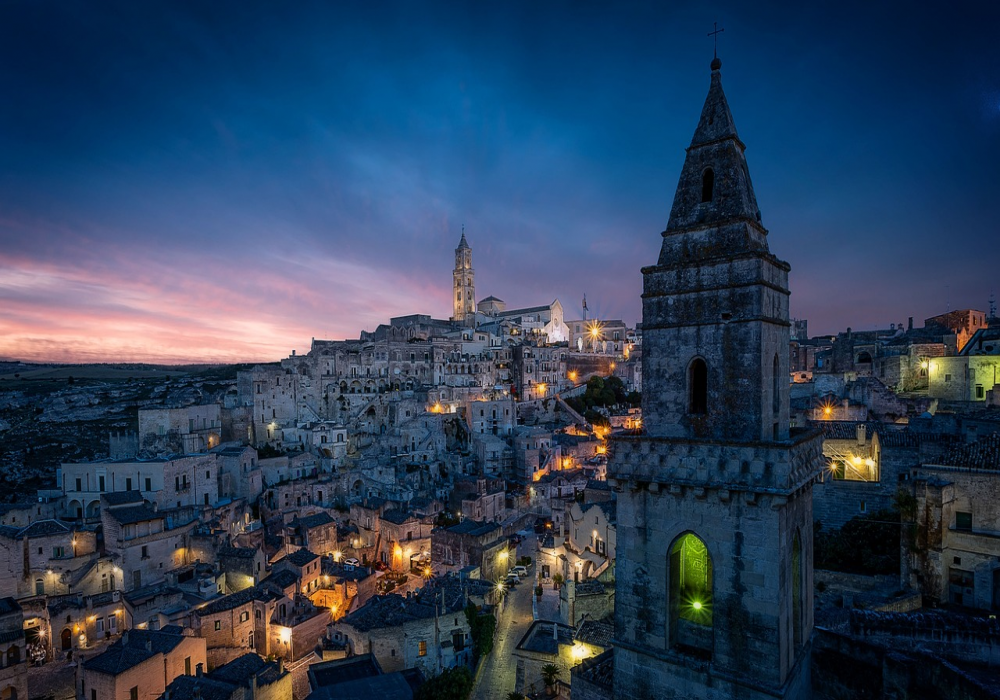
Why Italy Is A Top Destination For Culinary Classes?

Wayanad Spice Villages: Explore Kerala’s Aromatic Heart

Alserkal Avenue: Cultural Guide to Dubai’s Creative Hub

Galle Spice Farms Sri Lanka: Beyond the Fort Spice Farms and...



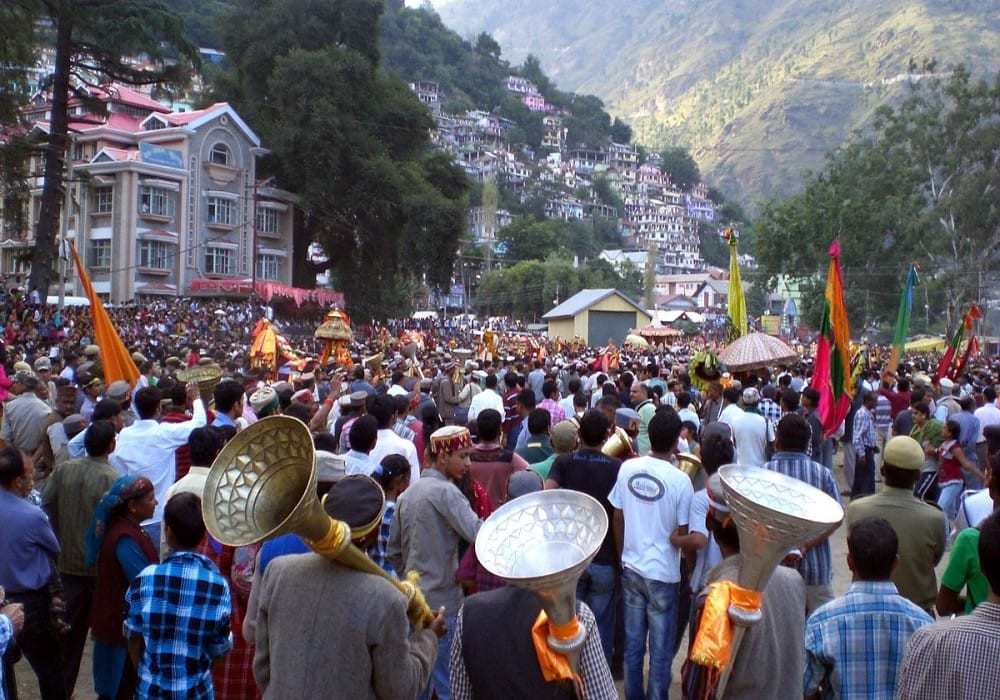



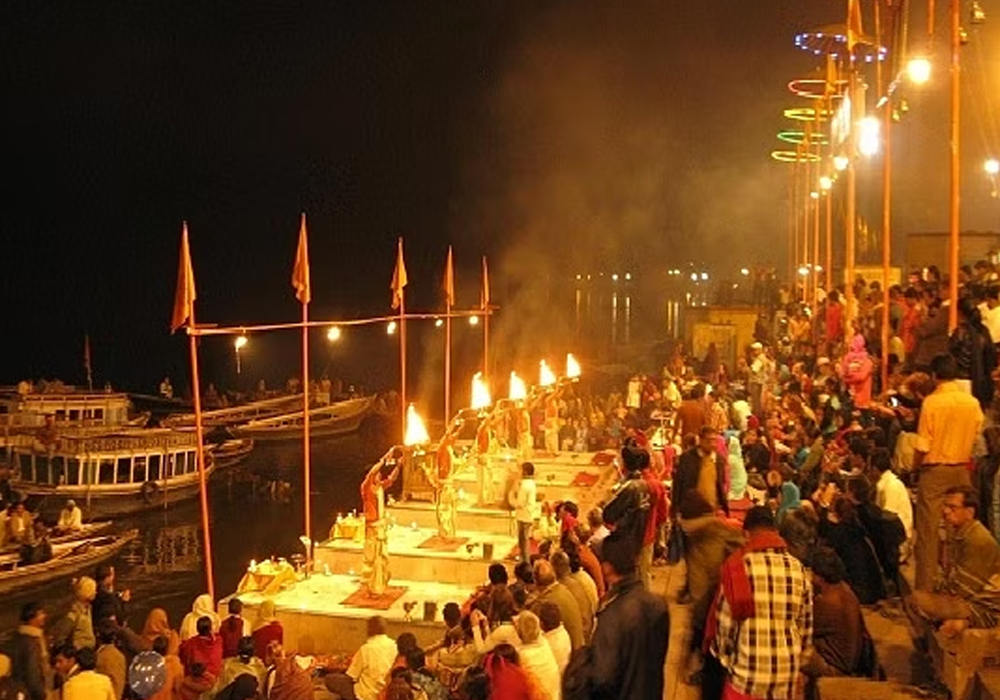
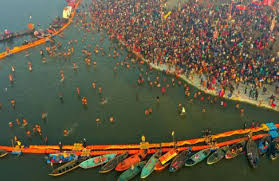
 Dubai
Dubai Malaysia
Malaysia USA
USA





